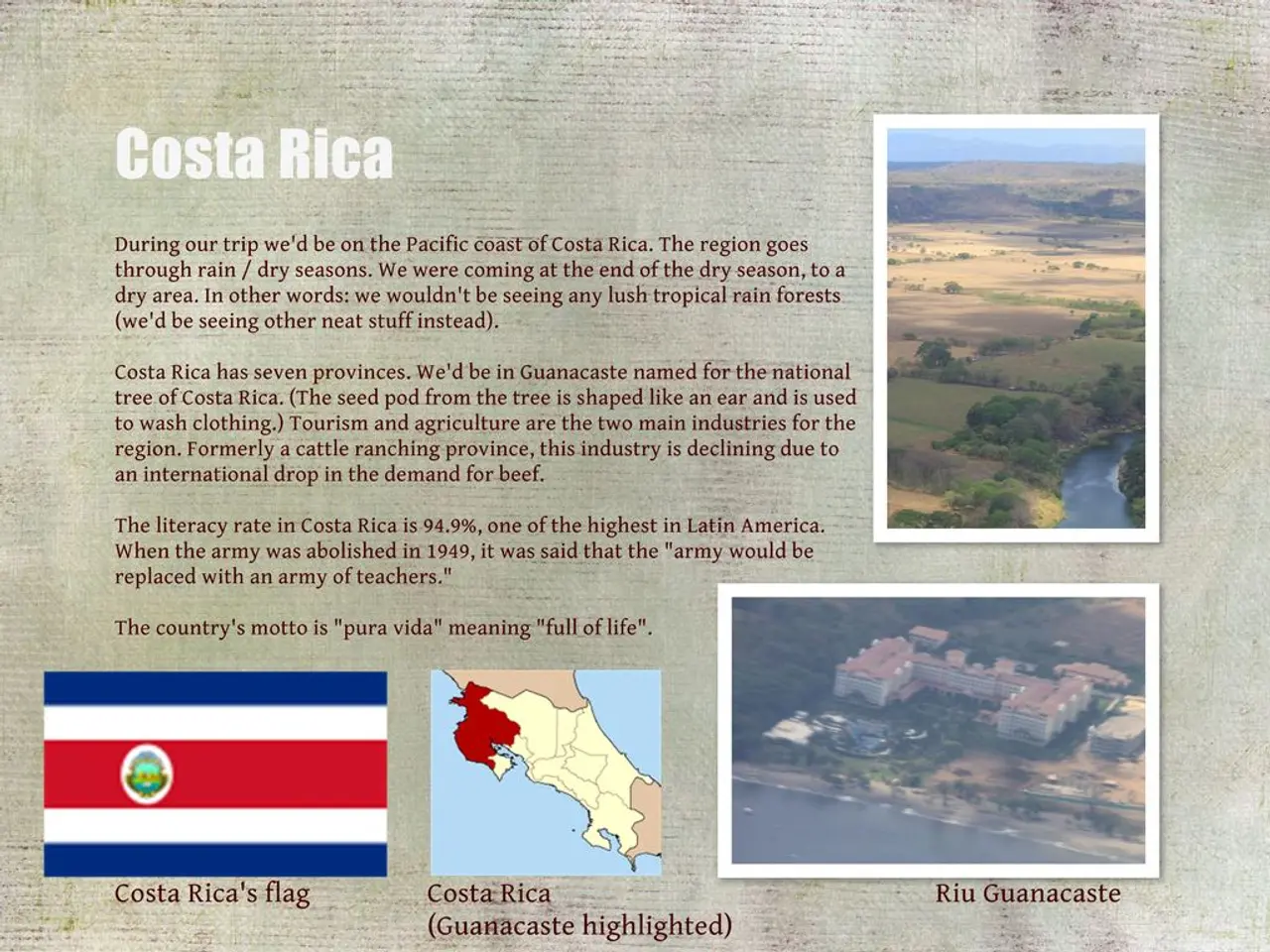Enhancement of Livelihoods for Thousands of Families in Latin America Through Community-Based Ecotourism
In the heart of Latin America and the Caribbean, ecotourism is making a significant impact, particularly in countries like the Dominican Republic and Bolivia. This form of sustainable tourism is focused on regenerative practices, allowing communities to take advantage of their incredible nature and cultural heritage while generating quality jobs.
One such community is the Uyuni Salt Flat in Bolivia. Cristina López, a local woman, has revived ancestral recipes and taken her gastronomy to international fairs, while Wilfredo Veniz leads an association of entrepreneurs offering quality services to tourists. Their efforts, along with many others, have marked a turning point in the community tourism of the region.
The improvement in the quality of services and a 22% increase in family income are noteworthy achievements. These improvements are the result of initiatives such as the RUTAS methodology "Sustainable Quality Community Tourism" of the NGO CODESPA, which boosted over 800 initiatives in 17 communities, benefiting more than 4,000 families in Ecuador, Bolivia, and Peru by 2011.
Gender equity is a fundamental pillar of these projects. Many rural women in these communities are leading tourist enterprises and participating in community decision-making. Youth in these communities also receive training in digital and management skills, ensuring the continuity of these initiatives and providing them with access to new opportunities.
Entities like the Spanish Agency for International Development Cooperation (AECID), the United Nations Development Programme (UNDP), the "la Caixa" Foundation, or the Critical Ecosystem Partnership Fund (CEPF) have been instrumental in consolidating inclusive and sustainable tourism models. CODESPA, an organisation that has been driving sustainable tourism projects in Ibero-America, Africa, and Asia for nearly two decades, has played a crucial role in this endeavour.
Activities in the Cabo Samaná Natural Monument, an unspecified country, implement a pioneering model of regenerative ecotourism. Birdwatching, whale and manatee watching, hiking, and rock climbing are just a few of the activities offered, all with a participatory and respectful approach to the environment.
In Ecuador alone, more than 500 families participate in 50 tourist initiatives that have significantly improved their income and quality of life. Nearly 80,000 hectares of forests and paramos are conserved in Ecuador through ecotourism initiatives.
The bet of these communities has its roots in 2005, when a pioneering program of rural community ecotourism was launched in Ecuador, Bolivia, and Peru. None of this would be possible without solid alliances between communities, businesses, governments, and local and international organisations.
Ecotourism is consolidating as a sustainable development path for thousands of families in Latin America and the Caribbean, offering a real opportunity for development to those who make it possible.
Read also:
- ICE directed to enhance detention conditions following NYC immigrants' allegations of maltreatment
- Israeli finance minister issues warnings about potential annexation of West Bank territories
- United States faces rebuttal from South Africa over allegedly deceitful human rights report and assertions of land expropriation
- Accident at Rodalben Results in Injuries; Geoskop Area near Kusel Affected After Stormy Weather








